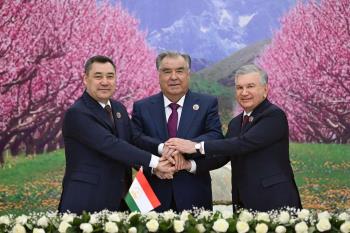Alwaght – In one of the harshest attacks on his Russian counterpart, US President compared Vladimir Putin to the dead Iraqi dictator, Saddam.
Speaking during an election campaign to promote Hilary Clinton, his party’s candidate for the upcoming US presidential elections, President Barak Obama reacted to a recent comment by the Republican Candidate, Donald Trump who had regarded Putin a better leader than Obama.
The furious US President said “When the interviewer asks him [Trump], ‘why do you support this guy [Putin]?’ He says, ‘He is a strong guy. Look, he’s got an 82 percent poll rating.’ Well, yes, Saddam Hussein had a 90 percent poll rating”.
In an interview aired on Russian RT Channel, Trump had praised Putin as a strong leader who is also popular. He has also been reported to describe Putin a better leader than Obama in one his campaigns.
Accusing Russian president of a crackdown on his opponents, Obama said “If you control the media and you’ve taken away everybody's civil liberties, and you jail dissidents, that's what happens”.
In an unprecedentedly harsh comment on his Russian counterpart, Obama added “now their nominee [Trump] is out there praising a guy [Putin], saying he’s a strong leader, because he invades smaller countries, jails his opponents, controls the press, and drives his economy into a recession.”
The Russian president has been at the center of some arguments during the US presidential campaign but this is the first time a running US president is openly accusing the Russian leader on such controversial issues.
The level of hostility between the two main rival candidates in US is surprisingly high and many believe they are sacrificing their national interests to win a domestic election.
“In my 50 odd years covering the US government, I have never seen this level of partisanship within the administration where a sitting president actually regards the opposition party as the enemy of the state,” said Gregory R. Copley, editor of Defense & Foreign Affairs.
The US establishment is “sacrificing key bilateral relationships in order to win [a] domestic election,” believes Copley.



























